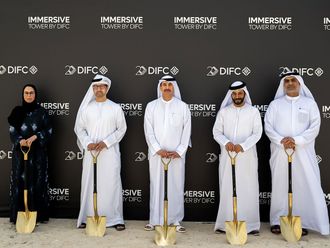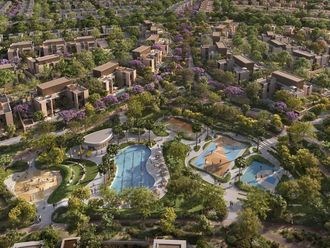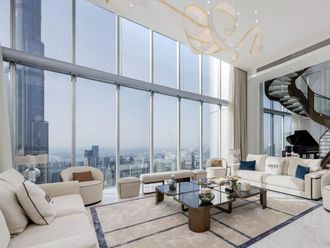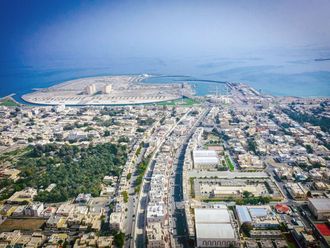Dubai: Silvia Turrin paid two-thirds of the $520,000 (Dh1.9 million) purchase price of her Dubai apartment, only to learn that it won't be finished until 2012, two years late. When she stopped payments to Emaar Properties, the developer hit her with late fees.
"We feel hopeless and we're running out of options," said Turrin, one of about 400 buyers in two non-existent towers called 29 Boulevard. "It's almost like we don't have any rights."
Developers in Dubai are demanding that buyers like Turrin keep paying for homes that in some cases haven't even been started. Builders have delayed or cancelled projects worth about $330 billion, Dubai-based market researcher Proleads estimates.
Developer Emaar isn't the only one dealing with disgruntled buyers. About 30 filed a claim against Union Properties at the Judicial Authority at Dubai International Financial Centre, saying it breached contracts by failing to deliver apartments on time. Nakheel said it's assessing which projects will be halted.
"There is a growing distrust between developers and customers," said Chet Riley, a Dubai-based analyst at Nomura Holdings. "Customers don't want to pay because they can't see the development being completed and developers can't continue building because customers are not paying."
Disputes between buyers and builders are eroding confidence and discouraging new investors needed to spark a recovery, Riley said.
Buyers in Emaar's 29 Boulevard were notified of the two-year construction delay in February, just before the original completion date for the two 45-storey towers. Most have paid 30 to 65 per cent of the purchase price, according to Mehdi Nosratlu, who heads a group of investors negotiating with Emaar. The site remains a walled-off hole in the ground with idle cranes hovering above.
Swap options
Emaar, among the first companies to allow buyers to swap for different units, said in a March 18 statement that it's offering customers flexible payments on an individual basis and has informed buyers about negotiations with contractors to lower construction costs. It didn't respond to a further request for comment. Nakheel said it's offering alternative properties and new financing terms to investors in stalled projects. Union Properties said in a March 29 statement that it isn't in breach of any contracts.
Regulation
The Real Estate Regulatory Agency, or Rera, was set up in 2007 to licence and govern the market. A real estate court was also created to rule on disputes that aren't resolved by the Dubai Land Department's mediation centre. Rera put in place laws that tie customers' payments to the progress in construction.
"Gradually, Dubai has been passing its real estate laws and regulations," observed Lisa Dale, a partner in the Dubai-based law firm Al Tamimi.
After finding that they own unfinished properties that are worth less than they owe on mortgages, many buyers just want to get out, Rera's chief executive Marwan Bin Galita said. While the regulator can protect buyers' rights, "people have to take responsibility for their investment decisions", he said.












